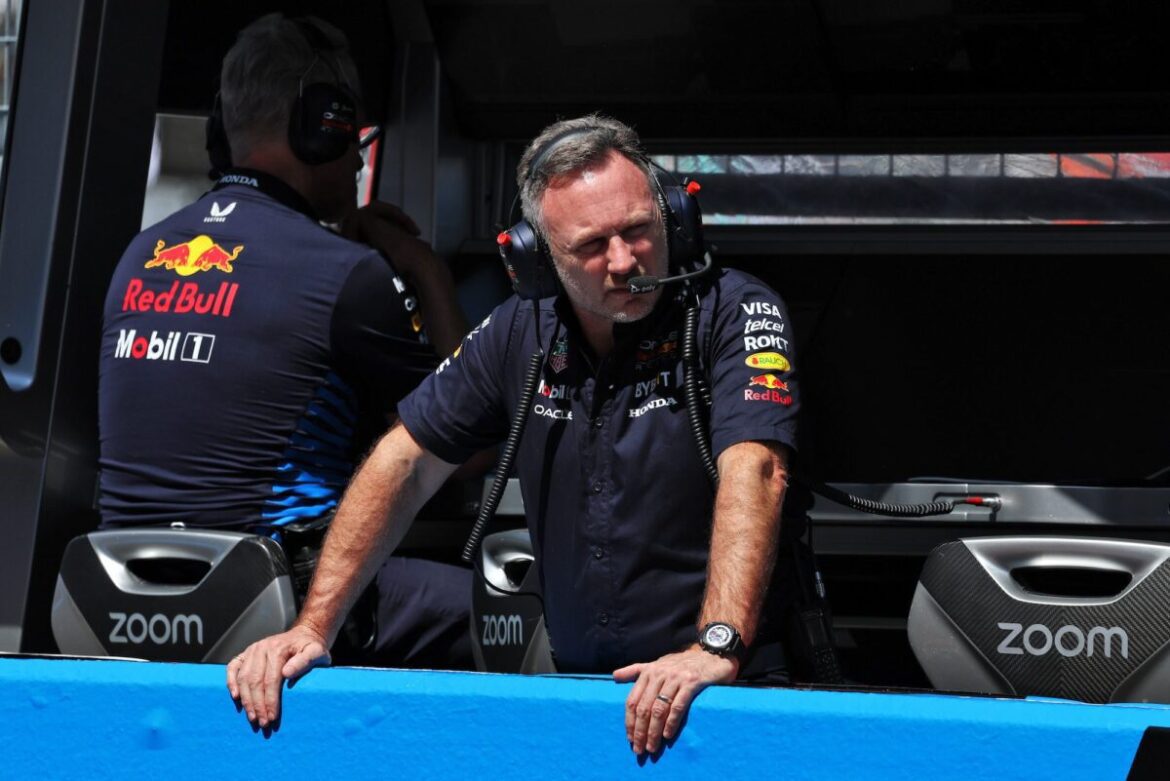Christian Horner’s Departure from Red Bull Racing: A Shift in Leadership
Christian Horner’s exit from Red Bull Racing marks the end of an era for the team, which he has led for two decades. His departure was not without its share of internal conflicts, as reports indicate that tensions had been escalating during shareholder meetings. Sources suggest that Horner’s attempts to maintain tight control over the team’s operations led to clashes with the upper management of the organization.
The Struggles of Leadership
Horner held dual roles as both CEO and team principal, a position that allowed him to shape the team’s direction significantly. Just prior to his dismissal, he expressed confidence in the structure he had established, asserting that the team did not require any changes. However, this perspective was not shared by the Red Bull leadership, which felt that a shift was necessary to adapt to the evolving landscape of Formula 1.
The situation reached a boiling point when Horner blocked a proposal for Porsche to acquire a 50% stake in the team. This move was perceived as a threat to his authority and sparked a dispute with Oliver Mintzlaff, the Austrian executive, as well as Chalerm Yoovidhya, the Thai shareholder who has significant influence within Red Bull. The friction between Horner and the shareholders became increasingly apparent during meetings, particularly following Red Bull Racing’s success in the 2023 and 2024 seasons.
Performance and Pressure
Despite Red Bull Racing’s impressive performance, Horner’s influence began to wane, especially as the McLaren team began to surpass them in terms of competitiveness. This change in dynamics put additional pressure on Horner, who found himself at odds with Mintzlaff during a discussion over control of the marketing department. The inability to find common ground further strained their relationship.
In a surprising turn of events, Horner was summoned to London, where he was terminated without a clear explanation provided. His departure leaves the team grappling with challenges in the current Formula 1 season, now under the leadership of Laurent Mekies, who has taken over as the new team principal. Mekies will need to tackle the difficulties that the team is facing, which marks one of their weakest seasons in the Constructors’ Championship since 2015.
Red Bull’s Current Standing
At present, Red Bull Racing finds itself in fourth place in the championship standings. While the initial shock of Horner’s departure has begun to wear off, many team members are rallying to confront the new challenges ahead under Mekies’ leadership. The atmosphere within the team appears to be one of resilience and determination, as they prepare to navigate a season filled with potential obstacles.
The dynamics within the team and its leadership will play a crucial role in how effectively they can regroup and strategize for the remainder of the season. The transition in leadership brings both uncertainty and an opportunity for a fresh perspective, which could ultimately benefit the team as they aim to regain their competitive edge in Formula 1.
Future Outlook for Red Bull Racing
Looking ahead, Red Bull Racing must address several key areas to enhance their performance and reclaim their status as a front-running team. The new leadership under Mekies presents an opportunity for innovation and strategic adjustments, but it will require a collaborative effort from all team members to implement successful changes.
Additionally, the relationship between the leadership and shareholders will be pivotal in shaping the team’s future direction. Open communication and a shared vision will be essential to ensure that all parties are aligned in their goals and strategies. As the team works to overcome the challenges of the current season, the ability to adapt and evolve will be critical.
Embracing Change in Formula 1
The world of Formula 1 is known for its rapid changes, both on and off the track. Teams are continually required to adapt to new regulations, technological advancements, and the ever-changing competitive landscape. Red Bull Racing’s recent leadership shift is a reflection of this dynamic environment, highlighting the need for teams to remain agile and responsive to external pressures.
As the team embarks on this new chapter, the focus will be on fostering a culture of collaboration and innovation. By encouraging team members to share their ideas and insights, Red Bull Racing can harness the collective expertise within their ranks to drive improvement and performance.
Lessons from the Past
Horner’s long tenure at Red Bull Racing serves as a case study in the complexities of team leadership in high-stakes environments. His approach to management, while effective in many ways, ultimately faced challenges that led to his departure. This situation underscores the importance of adaptability and the willingness to embrace change within a team.
For Red Bull Racing, the lessons learned from Horner’s leadership will be invaluable as they move forward. By reflecting on past successes and setbacks, the team can better position itself for future triumphs. The focus should be on building a cohesive unit that can navigate the challenges of Formula 1 with resilience and determination.
Conclusion
In summary, Christian Horner’s exit from Red Bull Racing signifies a significant shift in the team’s leadership dynamics. As they transition to new leadership under Laurent Mekies, the team faces both challenges and opportunities. Embracing change, fostering collaboration, and maintaining open lines of communication will be crucial for Red Bull Racing as they seek to regain their competitive edge in the fast-paced world of Formula 1. The coming months will be critical in determining how effectively the team can adapt to the new leadership and overcome the hurdles they currently face.
In this ever-evolving sport, success often hinges on a team’s ability to innovate and respond to the demands of the competition. Red Bull Racing’s future will depend on their capacity to learn from the past while looking ahead to new possibilities. As fans and stakeholders watch closely, the team will be tasked with rising to the occasion and proving their mettle in the face of adversity.
